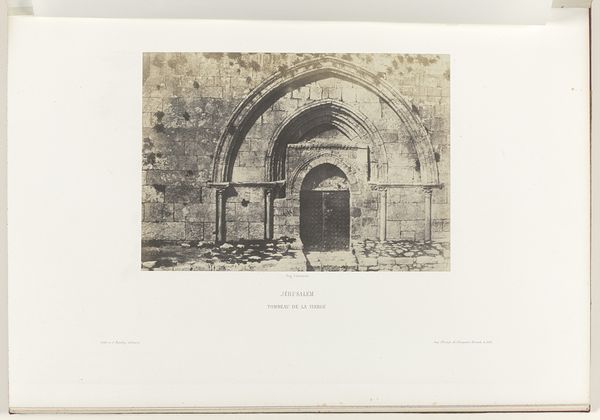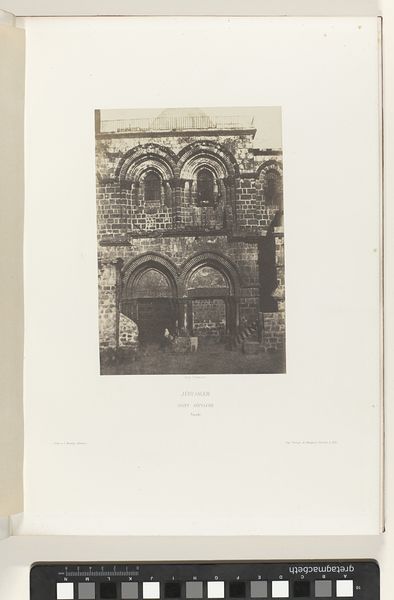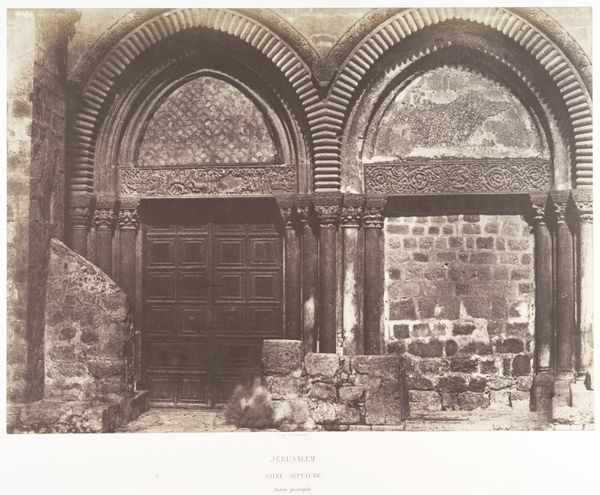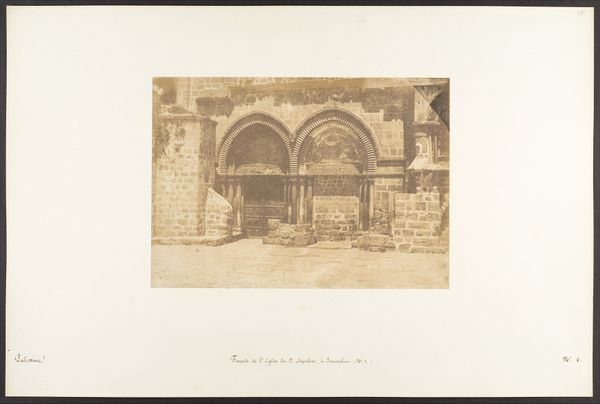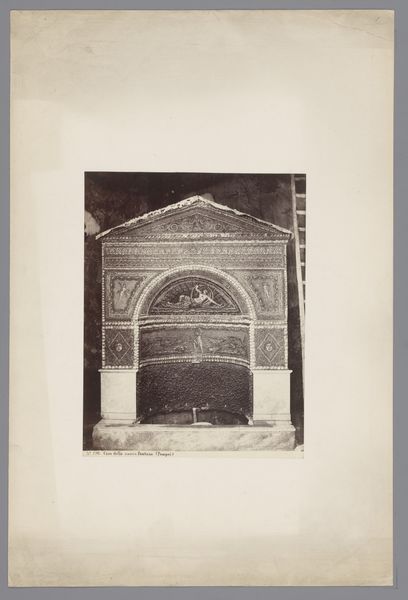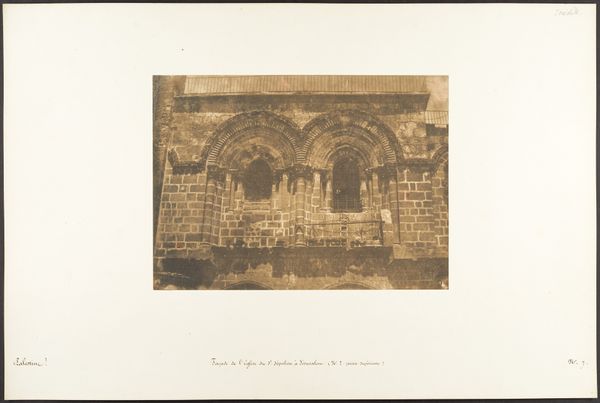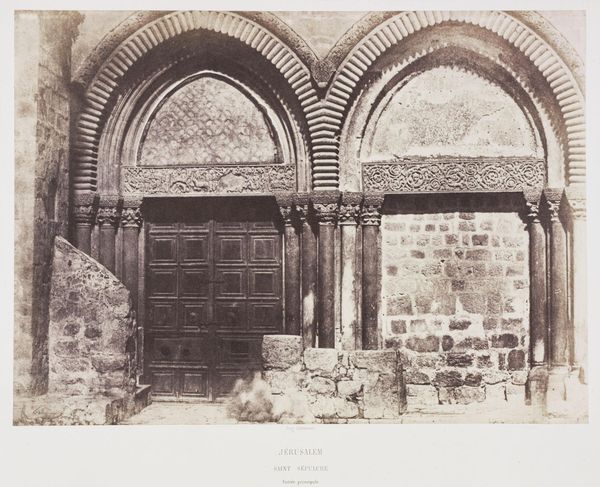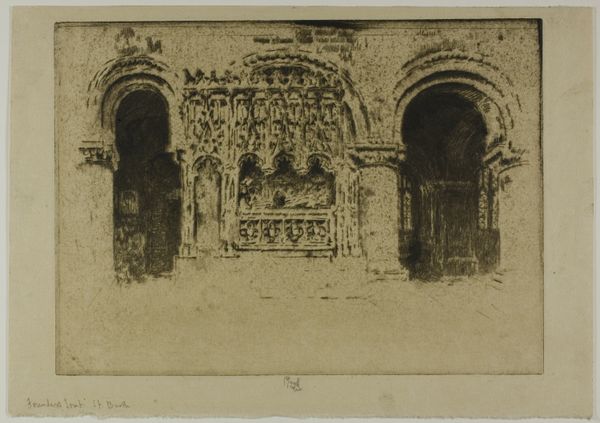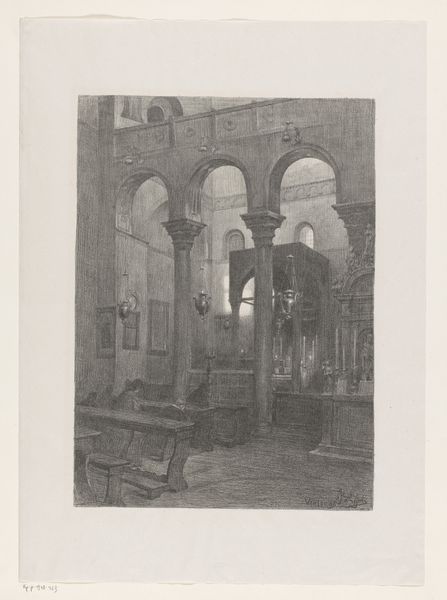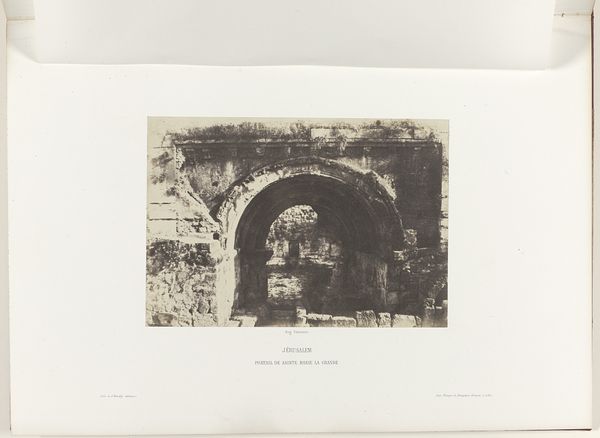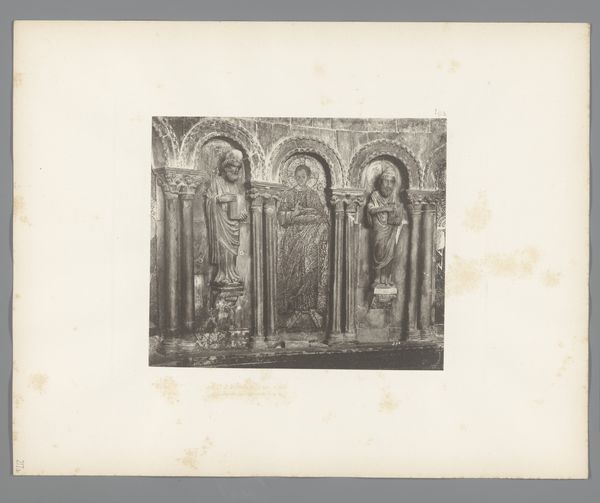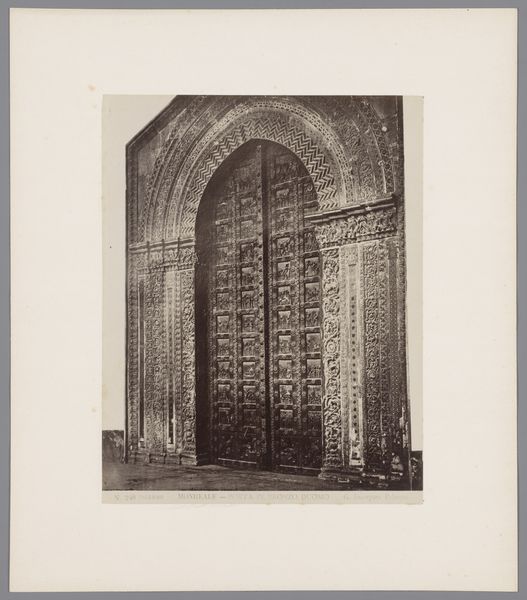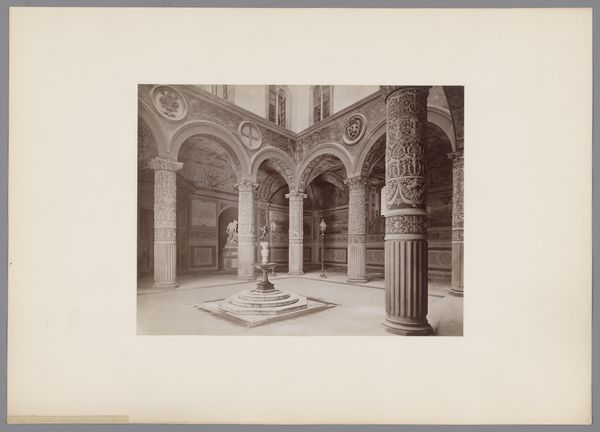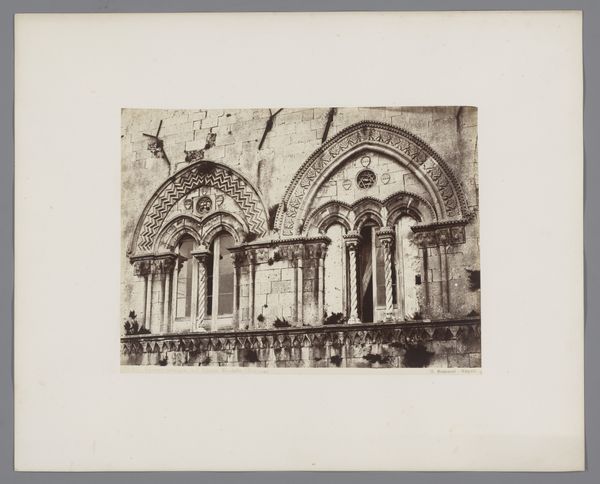
print, photography, albumen-print, architecture
#
ink paper printed
# print
#
pencil sketch
#
photography
#
islamic-art
#
albumen-print
#
architecture
Dimensions: height 153 mm, width 214 mm
Copyright: Rijks Museum: Open Domain
Auguste Salzmann made this photograph of the main portal of the Church of the Holy Sepulchre in Jerusalem in the mid-19th century. Salzmann's image presents us with an imposing, if somewhat weathered, entrance. What once was a double doorway now has one side walled up. The photograph was made during a period of intense European interest in the Holy Land, fueled by both religious and colonial ambitions. Photography played a crucial role, offering seemingly objective records of sacred sites. However, we must remember that these images are far from neutral. Salzmann, commissioned by the French government, was participating in a broader project of cultural and political mapping. His photographs were intended to provide scientific documentation, but they also served to reinforce European claims to knowledge and authority in the region. Looking at this image, we should ask ourselves, whose story is being told, and for what purpose? The Church itself has a long institutional history and has been central to shaping both religious and political views on the region. By consulting historical archives and postcolonial studies, we can critically examine this photograph and its place in the complex history of the Holy Land.
Comments
No comments
Be the first to comment and join the conversation on the ultimate creative platform.
